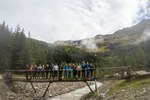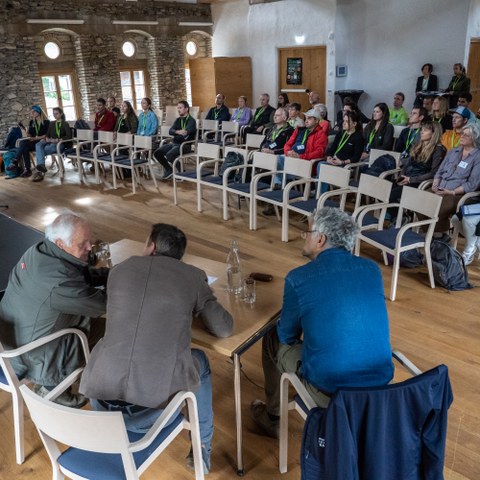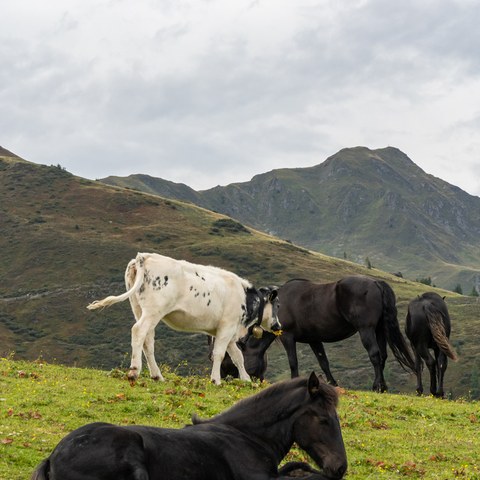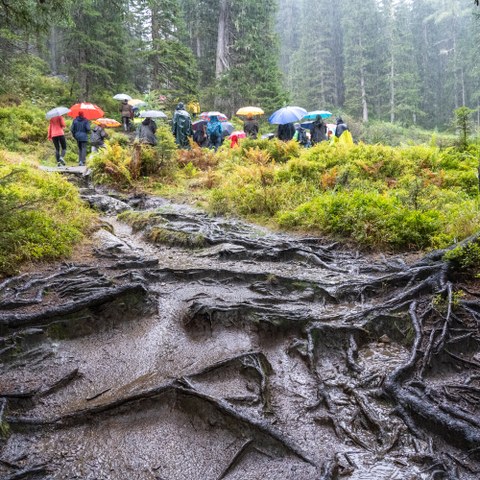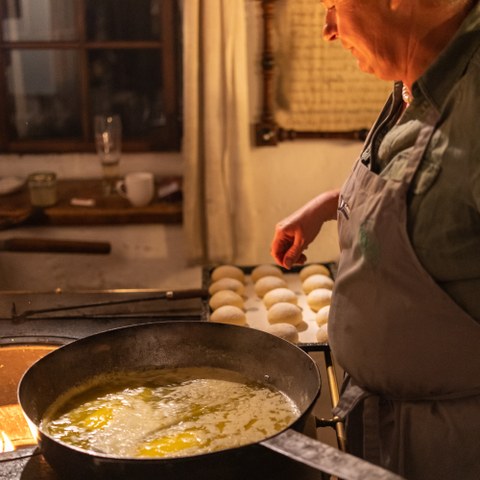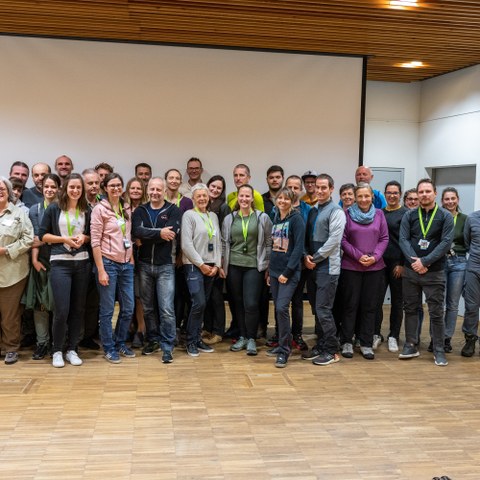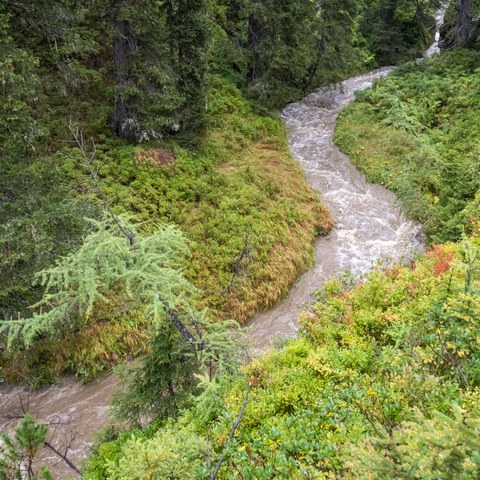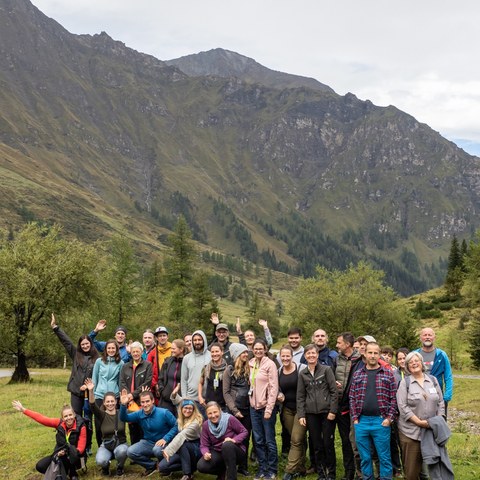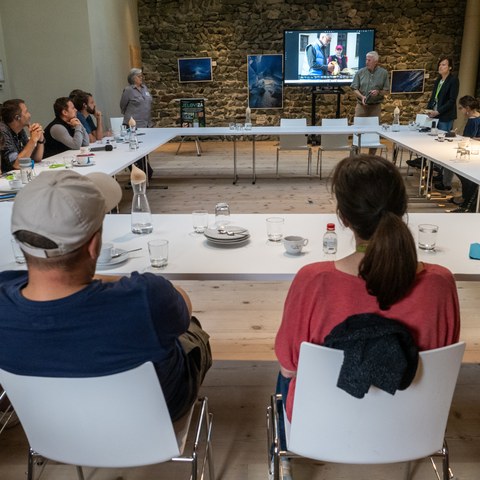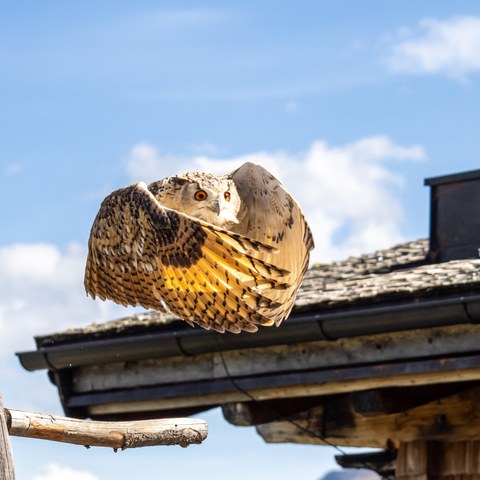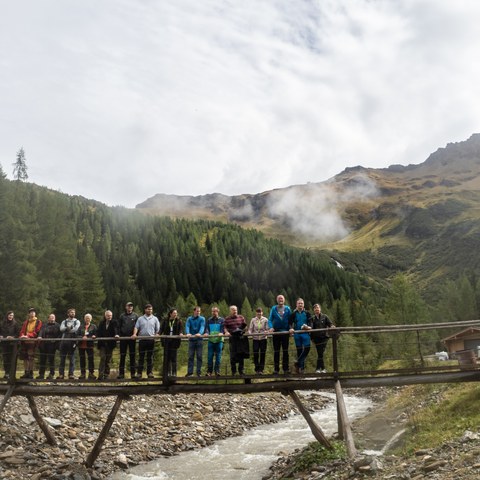Media releases
Ideas for Jelovica from Pinzgau

From 14 to 16 September 2022, representatives of six partner organisations travelled to Austria to learn first-hand about the management of the Hohe Tauern National Park region in Pinzgau/Salzburg. The Pinzgau region has many things in common with the Jelovica plateau in Slovenia: the region is characterised by forest and alpine pastures, while its biological and cultural diversity form the basis for sustainable management in tourism, forestry and more.
Using strategic communication
The Jelovica plateau is located in the eastern part of the Julian Alps and is characterised by its karstified landscape that is covered mainly by coniferous forest. It is an important Natura 2000 protection area in Slovenia, providing refuge for nine protected bird species such as the capercaillie and the pygmy owl, among others. Jelovica is confronted with various challenges: on the one hand, with the effects of climate change such as storm damage and bark beetle infestation in the forest and, on the other, with its increasing use as a recreational and leisure area. The problem is that there is no strategic management plan that includes either nature conservation or tourism and regional development.
The main aim of the excursion was to learn from practical examples in Pinzgau, as project leader Katarina Žakelj from CIPRA Slovenia explains: “We wanted to find out how strategic communication can be used to achieve the goals of nature conservation, visitor guidance and the preservation of local natural and cultural heritage.” The project partners are developing an integrative management model for the Jelovica plateau on this basis.
Tourism: nature in the foreground
The JeloviZA excursion took the group to Krimml/A, Mittersil and Rauris/A, among other places. There, nature and culture are interpreted in first-rate ways as a means of strategic communication, as the content leader of the excursion, Marjeta Kerišč Svetel, explains: “It is an experience-oriented way of communicating the relationship to the natural and cultural heritage. People are consciously encouraged to build a personal and respectful relationship with nature, culture and history, especially through their own experiences.” Gerhard Meister, Managing Director of the Rauris Tourism Association, reinforces this observation: “We have our nature and we work with it. We want to convey nature to the guests, but not through fun or action programmes; nature should be in the foreground instead.” Central to this, he says, is maintaining ties to local culture and traditions. The municipality is working on this together with the tourism association, the lift facilities and the hunting and forestry industries. For example, the National Park House in Rauris provides information about such “kings of the air” as kestrels, griffon vultures or golden eagles. The “Water Worlds” in Krimml raise awareness of the importance of water for life in the Alpine regions and beyond. National Park rangers lead weekly tours through the Rauris primeval forest in the Kolm-Saigurn Valley and explain forest management in the Hohe Tauern National Park, while the Felberturm Museum preserves the heritage of the muleteers and the mule trade. The superb “Rauchkuchl”, located in a 500-year-old farmhouse inn, serves dishes that preserve and reinterpret the culinary heritage of the region. From wild herbs to berries and mushrooms – surprise menus are conjured up from everything that the forests and alpine pastures of the surrounding area have to offer.
Integrative nature conservation management
In the National Park Centre Mittersill/A, the Slovenian project group from JeloviZA learned more about the successful management of the protected area. A management plan here covers all areas, from nature and species protection to visitor guidance and educational work. As Wolfgang Urban, Director of the National Park Administration in Salzburg, explains, it is essential for the success of such a management plan “to involve all interest groups in its preparation and implementation”, from tourism and hunting to local politics.
About the JeloviZA project
JeloviZA is developing a management plan for the Jelovica plateau in Slovenia that will include nature conservation as well as tourism and regional development. The project partners are CIPRA Slovenia, the Slovenian Institute for Nature Conservation, the Slovenian Forestry Agency, the Sora Development Agency, the Municipality of Železniki and CIPRA International. Marjeta Keršič Svetel, an expert in strategic communication and alpine protected areas, a journalist and a former Vice-President of CIPRA, prepared the excursion programme and arranged contacts. Further information: www.cipra.org/en/jeloviza, www.ra-sora.si/projekt/jeloviza (sl)
Further information and contact details:
Katarina Žakelj, project manager, CIPRA Slovenia: [email protected]
Manon Wallenberger, project manager, CIPRA International: +423 237 53 12, [email protected]
| Type | Title |
|---|---|
|
|
Media release JeloviZA, 10.10.2022 |

